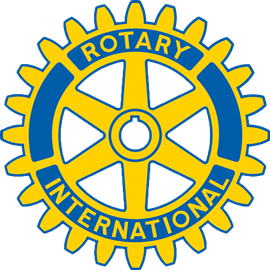LOCATION
901 NJ-168, Suite 407A, Turnersville, NJ 08012
CALL NOW
What Paperwork Is Filed To Start A New Jersey Bankruptcy Case?
A New Jersey Bankruptcy Debtor begins a New Jersey Chapter 7 Bankruptcy Case by filing papers with the New Jersey Bankruptcy Court called a "petition" and by paying a filing fee to the New Jersey Bankruptcy Court.
The New Jersey Bankruptcy petition must generally include the following items:
- A "schedule" or list of the New Jersey Bankruptcy Debtor's assets and liabilities
- A schedule" or list of the New Jersey Bankruptcy Debtor's of current income and expenditures
- A statement of the New Jersey Bankruptcy Debtor's financial affairs
- A schedule" or list of the New Jersey Bankruptcy Debtor's a schedule of executory contracts and unexpired leases.
Individual New Jersey Bankruptcy Debtors who mainly have consumer type debts must also file the following documents with their New Jersey Bankruptcy petition:
- A certificate of credit counseling issued to the New Jersey Bankruptcy Debtor
- A copy of any debt Reorganization Plan developed for the New Jersey Bankruptcy Debtor during credit counseling
- Evidence of payments received from the New Jersey Bankruptcy Debtor's employers, if any, received 60 days before filing the New Jersey Bankruptcy petition
- A statement of the New Jersey Bankruptcy Debtor's monthly net income and any anticipated increase in income or expenses after filing the New Jersey Bankruptcy petition
- A record of any interest the New Jersey Bankruptcy Debtor has in federal or state qualified education or tuition accounts.
To complete the New Jersey Bankruptcy Petition, the New Jersey Bankruptcy statement of financial affairs and the New Jersey Bankruptcy schedules, the New Jersey Bankruptcy Debtor must provide the following information:
- A list of all creditors and the amount and nature of their claims
- The source, amount and frequency of the New Jersey Bankruptcy Debtor's income
- A list of all of the New Jersey Bankruptcy Debtor's property
- A specific list of the New Jersey Bankruptcy Debtor's monthly living expenses - food, clothing, shelter/rent, utilities, taxes, transportation, medicine and the like.
The New Jersey Bankruptcy Petition Schedules Include a Schedule of “Exempt” Property
Property That the New Jersey Bankruptcy Debtor Asks to Keep under the New Jersey Bankruptcy Code or New Jersey Law Because the New Jersey Bankruptcy Debtor Claims It Is Free from Creditors Who Do Not Have Liens on the Property.
There are limits to the property a New Jersey Bankruptcy Debtor may claim is exempt from creditors' claims. To learn if specific property of yours is exempt, you should consult with an attorney. Don't try to guess what property might be exempt under the New Jersey Bankruptcy Code or New Jersey law because the law is very complex.
Also, the New Jersey Bankruptcy Debtor gives the New Jersey Bankruptcy trustee assigned to their case a copy of the New Jersey Bankruptcy Debtor's tax return or transcripts for the most recent tax year and tax returns that the New Jersey Bankruptcy Debtor filed during the New Jersey Bankruptcy Case (including tax returns for prior years that were not filed when the New Jersey Bankruptcy Case began).
Phone
Location
901 Route 168, Suite 407A Turnersville, N.J. 08012
We are a Debt Relief Agency. We are attorneys who help people file for bankruptcy under the bankruptcy code. The information on this website is for general information purposes only. Nothing on this site should be taken as legal advice for any individual case or situation. This information is not intended to create, and receipt or viewing does not constitute an attorney-client relationship.
Law Office of Ronald E. Norman, LLC


